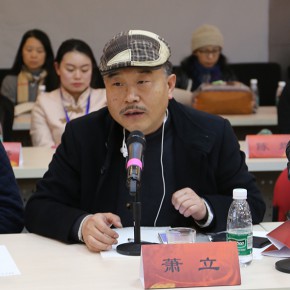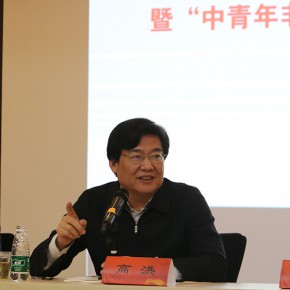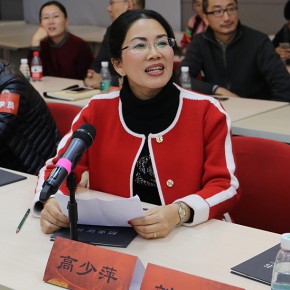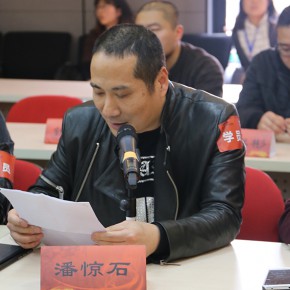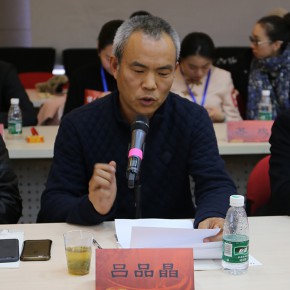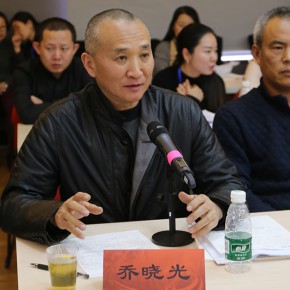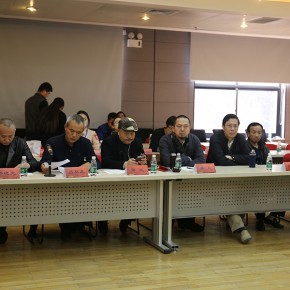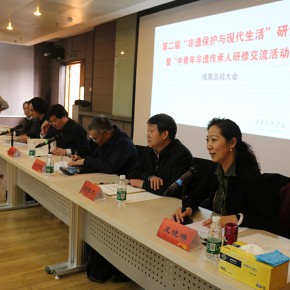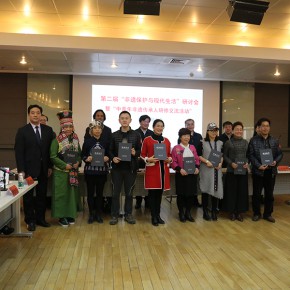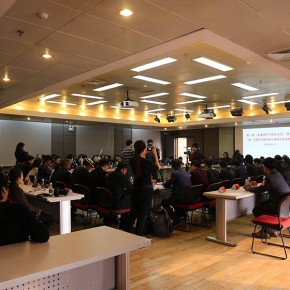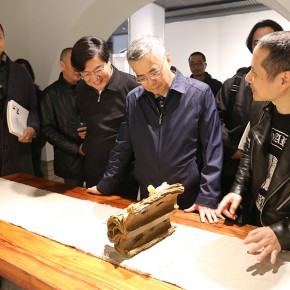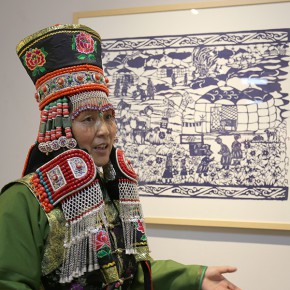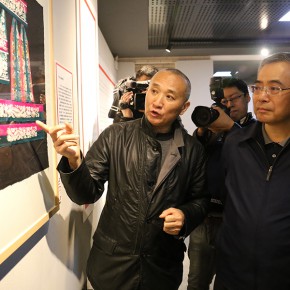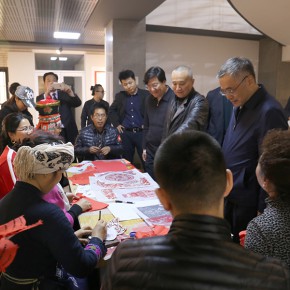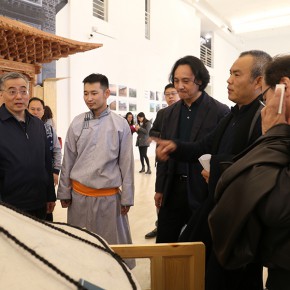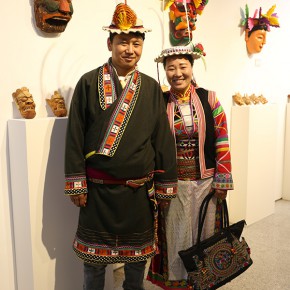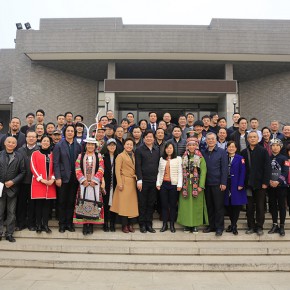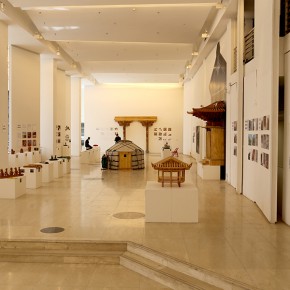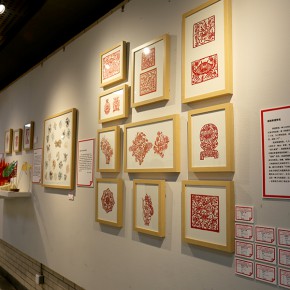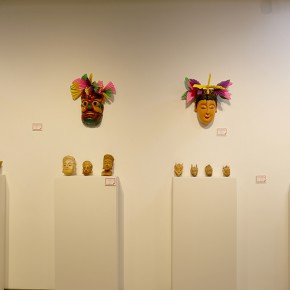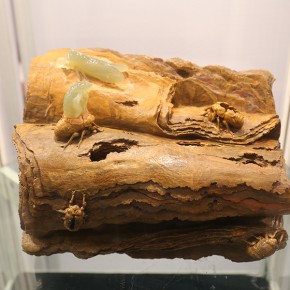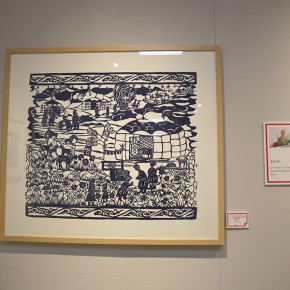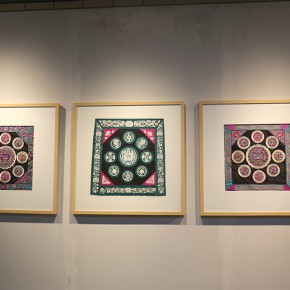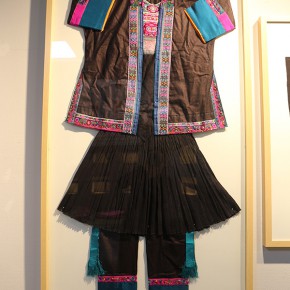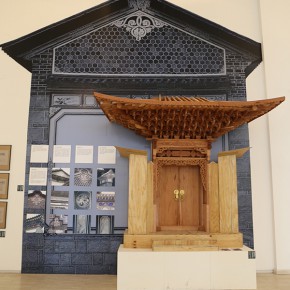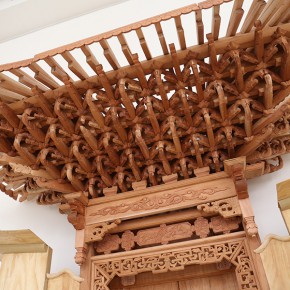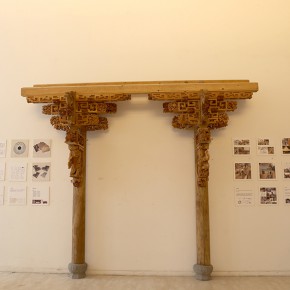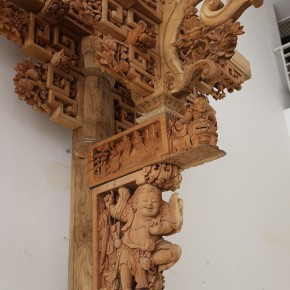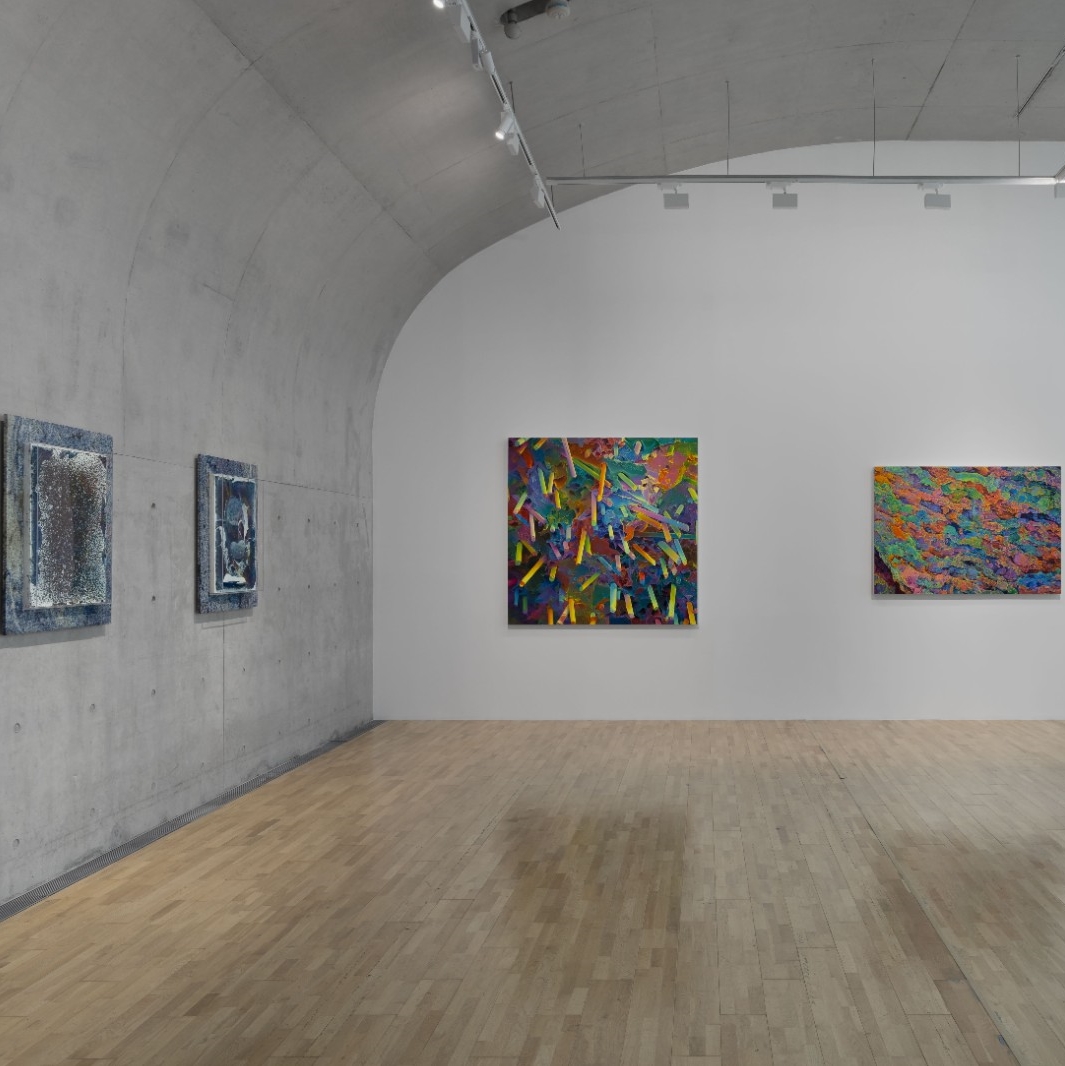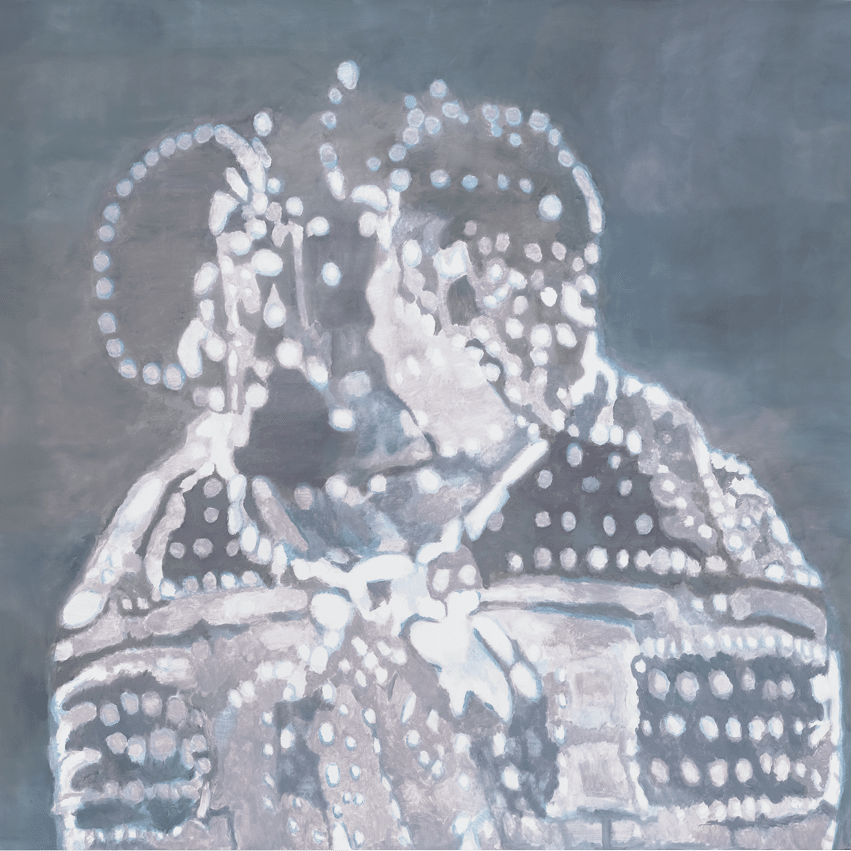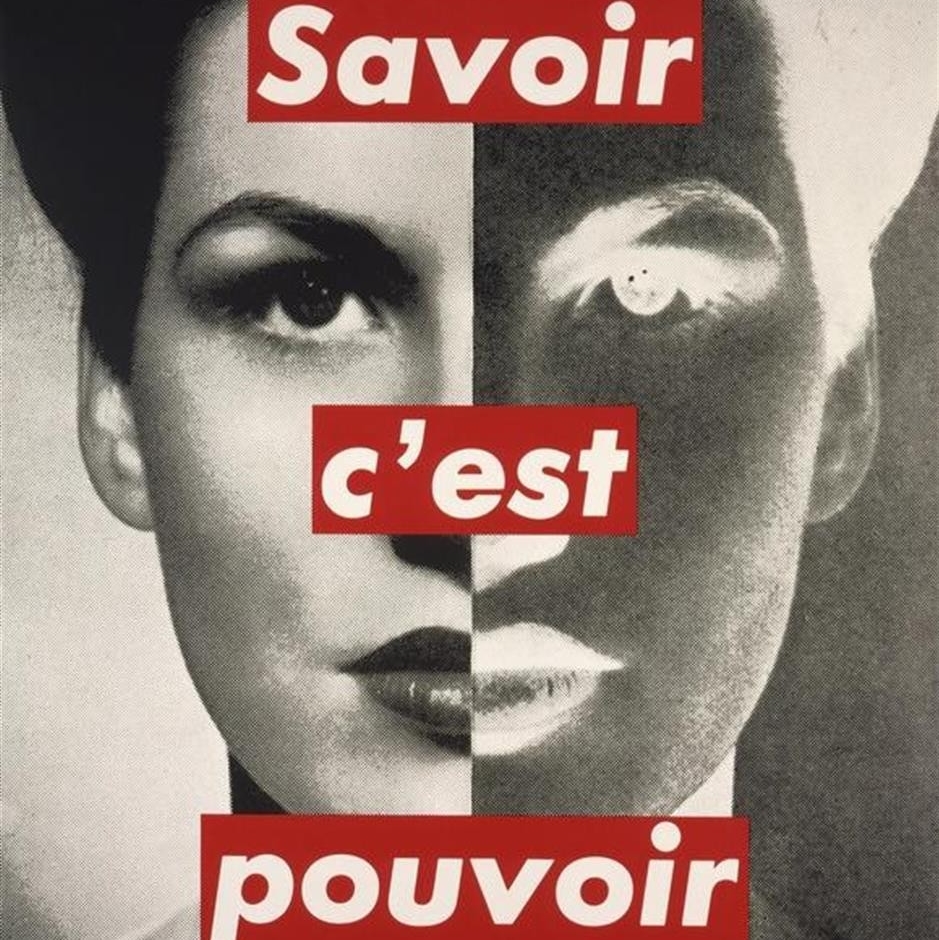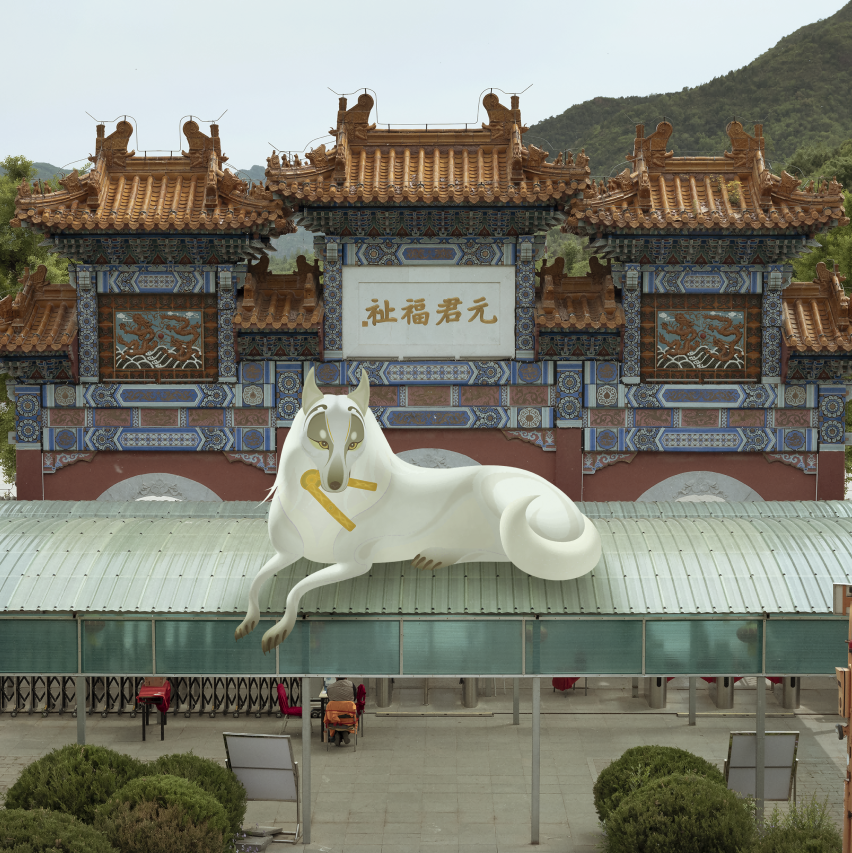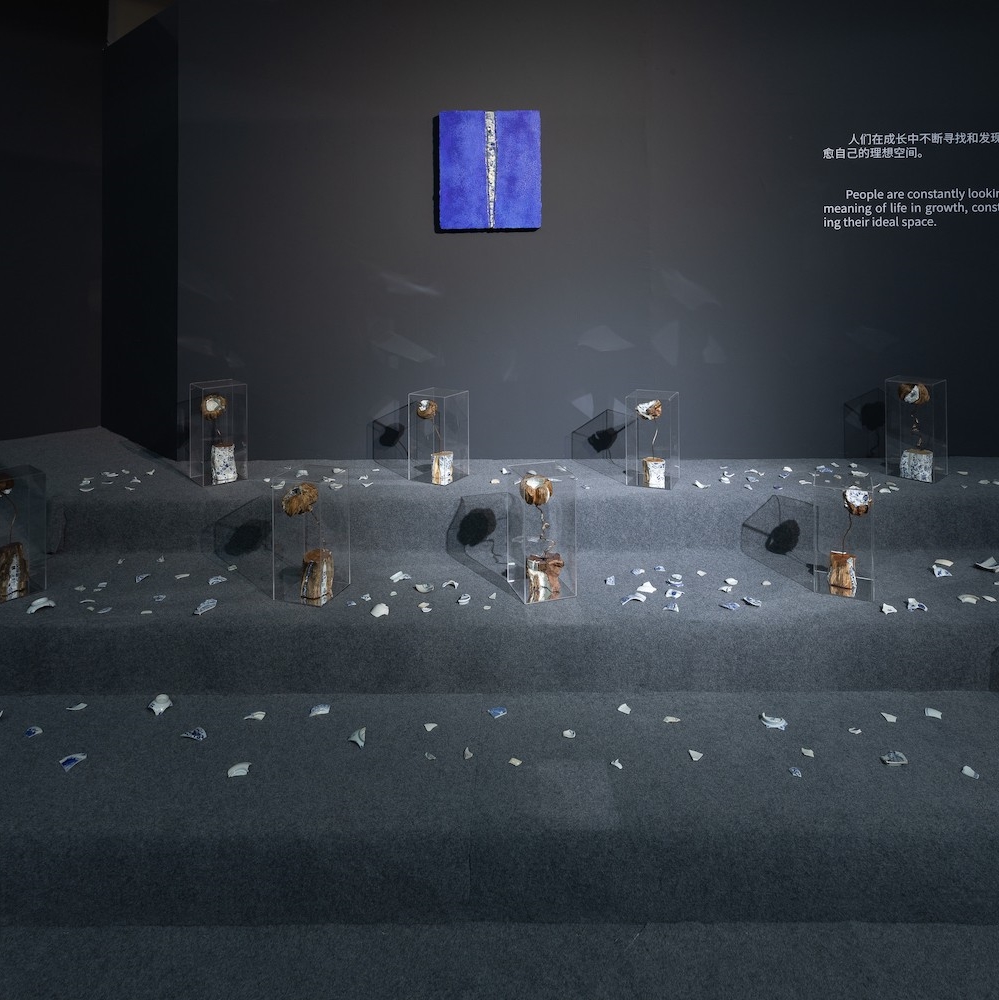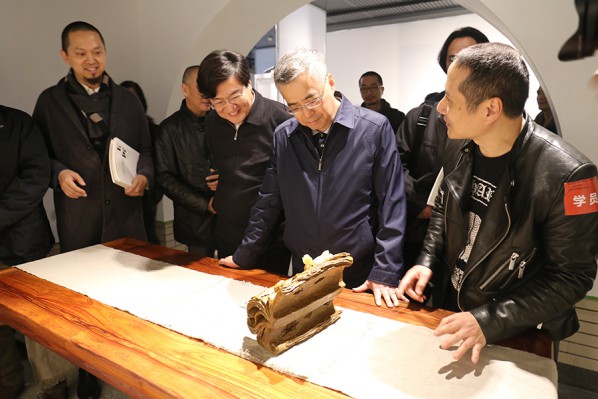
On March 17, 2016, the graduation exhibition of the 2nd CAFA “Intangible Cultural Heritage Protection and Modern Life–Young and Middle-Aged Intangible Culture Inherited Senior Training Class” officially opened, this graduation exhibition focused on the presentation of the creative achievements of the people that had inherited paper cutting, wood carving, jade carving, building construction skills and the graduation ceremony and seminar were held the same time, so far, the four months of training was successfully finished.
The Vice Minister of the Ministry of Culture Xiang Zhaolun fully agreed with the training work of CAFA and he said the successful training experience of CAFA would be included into the operation instructions of the “Middle-Aged and Young Intangible Cultural Inherited Training Project” by the Ministry of Culture, taking the training of CAFA as a sample to be promoted across the country.
On March 17, 2016, the graduation exhibition of the 2nd CAFA “Intangible Cultural Heritage Protection and Modern Life–Young and Middle-Aged Intangible Culture Inherited Senior Training Class” officially opened, the three groups of graduation works including wood carving, jade carving and paper cutting were respectively shown on the ground floor, second floor and third floor of the Spiral Staircase Exhibition Hall in Building 5, CAFA, and the graduation works of the residential construction group were displayed on the second floor exhibition hall in Building 7, CAFA, and the show lasted for a week. In addition, the seminar and graduation ceremony of “The 2nd CAFA “Intangible Cultural Heritage Protection and Modern Life - Young and Middle-Aged Intangible Culture Inherited Senior Training Class” were held simultaneously. Then, the four months of training class was successfully finished.
The Vice Minister of the Ministry of Culture Xiang Zhaolun, Inspector of the Department of Intangible Cultural Heritage Ma Shengde, Head of the Administration Division of the Department of Intangible Cultural Heritage Hao Yongan, Deputy Head of the Administration Division of the Department of Intangible Cultural Heritage Zhang Xiaoli, Deputy Director of the Department of Higher Education at the Ministry of Education Liu Guiqin and other leaders at all levels, in addition to Party Secretary of CAFA Gao Hong, Assistant to the CAFA President, Dean of the Academic Affairs Office Wang Xiaolin, Director of the Center of Intangible Cultural Heritage at CAFA Qiao Xiaoguang, tutors for the groups including Lv Pinjing, Xiao Li, Zhuo Fan, as well as all the students who completed the course were also invited to attend the events.
First of all, all leaders at all levels visited the graduation exhibition, appreciated the four professional groups including paper cutting, wood carving, jade carving and building construction that present the relationship between the intangible cultural heritage protection in the colleges and universities and the cultural community, from their different professional characteristics and perspectives. Then, the leaders at all levels awarded graduation certificates to the four groups of young and middle-aged intangible culture inherited individuals during the graduation ceremony, in the seminar the representatives of the four groups of inherited individuals, the tutor of the residential construction group Lv Pinjing, the tutor of the wood carving Xiao Li and the tutor of the jade carving group Zhuo Fan, the tutor of the paper cutting group and the chief director of the training class Qiao Xiaoguang, as well as the Vice Minister of the Ministry of Culture Xiang Zhaolun and Party Secretary of CAFA Gao Hong successively addressed to the exhibition.
Representatives of the inherited individuals made speechesDuring the part when the representatives of the inherited individuals respectively gave a speech, the inherited individual of the Dali Bai nationality residential colored drawing in Yunnan province Yang Kewen said that, now the tide of the protection of traditional arts and crafts had been raised across the country, under the advocacy of the national policy, their handicraft art gradually obtained worthy respect, therefore, it was necessary for the inherited individuals actively and constantly improving themselves in the practice, to improve all aspects of the handicrafts, so that they could be fully passed on to the next generation. He also hoped the Ministry of Culture would pay more attention to the particulars of the building construction category in future training, if the graduation work involved the big wooden parts of the building, it would encounter some difficulties in the safety of transportation and installation, as well as the cost, especially for the inherited individuals of ordinary incomes, so he hoped the funding arrangementsfor the training of the intangible cultural inheritance which would pay more attention to similar residential construction category.
The representative of the jade carving group the inherited individual of the Fujian Agalmatolite carving Pan Jingshi gave a speech and said that the biggest reward of this training was to break the traditional “guided regulation” of the jade carving and stone carving industry, the inherited individuals from various regions and genres sit together to learn from each other by exchanging views, rather than conservatively sticking to the skills of their own category.
The representative of the paper cutting group the inherited individual of Zhangpu paper cutting in Fujian province Gao Shaoping said that, the training helped them fully realize the important value and significance of the tradition, it was the foundation for the further development of creation, and also its scale that decided how far the innovation can be pushed forward.
The inherited individual of the Leqing boxwood carving in Zhejiang province Mou Xiangbo gave a speech on behalf of the wood carving group. When he talked about the relationship between the traditional and the modern, he said that the intangible cultural heritage should not only adhere to tradition, and also has to change, keeping pace with the times, integrate into modern life, in addition to the universities and colleges actively participating into the project, to understand the community, industrial status quo from a more macro perspective, only when the education of universities and colleges interacted with the inherited mechanism can it promote a solution of the problem.
The tutorial group summarized the teachingTutor of the jade carving group associate professor Zhuo Fan said that craftsmen were the ontology and source for artists. At present, it was a prominent problem to make traditional jade carving return to the local aesthetic consciousness, and the training offered a platform and opportunity to construct an in-depth discussion, which was very rare and precious. It was a direction indicator and power station for all the craftsmen engaged in the jade carving industry to face the future.
Tutor of the wood carving group associate professor Xiao Li hoped CAFA was able to build an institute of intangible culture heritage, on the one hand, it would bring a better learning space and cultural space for the inherited individuals, on the other hand, the students of the academy, and the teaching of the academy could really interact with the essence of Chinese traditional culture, so that the two-way “training” was more systematic and enduring.
Tutor of the residential construction group professor Lv Pinjing said in the summary that: The residential construction class was the first time to introduce the folk residential construction inherited individuals with special skills in the classrooms of the university. He said that, the School of Architecture had always hoped for this and was blending the concept and inherited style of residential construction skills into the contemporary academy teaching practice, contacting the traditional was very helpful for students to contact the concept of modern architectural ideas in the future. At the same time, the combination of the traditional construction skills and architectural education of the university would also promote the construction of a beautiful countryside and protect the traditional villages.
Summary of the overall teachingAs the tutor of the paper cutting group and the chief director of the training class, Prof. Qiao Xiaoguang said CAFA explored and summarized the teaching policy of “three cognitions: knowing the facts, knowing the art, knowing the defense” on the basis of successfully holding the first training last April, and strictly observing and implementing it in the course of teaching, which was the successful experience of training explored by CAFA. The deep-seated meaning of the training was to discuss the relationship problem between the university and the community. In view of the training, it was both for the national heritage and the innovation for life. Intangible culture heritage entered the campus, universities entered the community which were two aspects of the bidirectional training that were complementary, so the construction of the disciplines that were related to intangible culture heritage in the universities was lagging, seen from this point of view, the very essence of training was to promote the national inner cultural integration, if the intangible culture heritage was treated as a short-term project without the discipline theory and technical support in the era alternated with the new and the old, it would make the training passive.
Then, Vice Minister of the Ministry of Culture Xiang Zhaolun announced the future planning and opinion of the work of the intangible culture heritage. First of all, Xiang fully appreciated the training work of the intangible culture heritage by CAFA, the next step being a view of the problem of the intangible culture heritage, the Ministry of Culture did not only continue the implementation of the research and training projects of the intangible cultural heritage, but also further combined the plan and the revitalization of the traditional crafts, supporting the universities and colleges as well as enterprises to set up the work stations of traditional crafts in the locations of the traditional crafts; finally, as for the problem of the travelling expenses during the period of training proposed by the inherited individuals, Minister Xiang expressed that the Ministry of Culture would fund the inherited individuals with economic difficulties in their future training, so that the rich and varied intangible culture heritage could sustainably develop.
After the graduation ceremony and seminar, all the participants had a photo taken in front of the hall of the history at CAFA which marked that the training class was successfully finished.
Text by Pei Shiyun, Photo by Zhang DongpingTranslated by Chen Peihua and edited by Sue/CAFA ART INFO


